African American Heroes in U.S. Military History
African Americans have played vital roles in every major American war, often fighting against both external enemies and internal injustices. Despite systemic discrimination, these men and women demonstrated remarkable courage, skill, and leadership. In honor of Black History Month, we highlight six African Americans who made a significant impact during key wars in U.S. history.
Revolutionary War: Crispus Attucks (1723–1770)
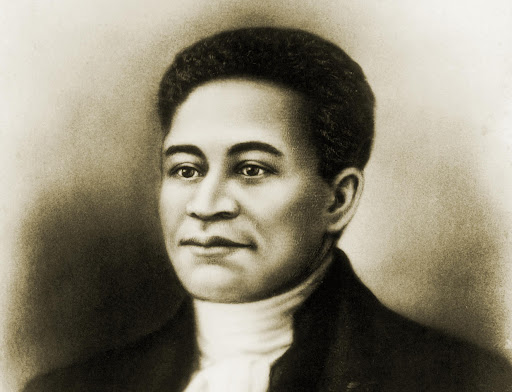 Crispus Attucks is often remembered as the first person to die in the Boston Massacre on March 5, 1770, making him the first casualty of the American Revolution. Born to an enslaved African father and a Native American mother, Attucks escaped slavery in his youth and became a sailor and dockworker in Boston.
Crispus Attucks is often remembered as the first person to die in the Boston Massacre on March 5, 1770, making him the first casualty of the American Revolution. Born to an enslaved African father and a Native American mother, Attucks escaped slavery in his youth and became a sailor and dockworker in Boston.
On that fateful night, British soldiers fired into a crowd of unarmed civilians protesting against taxation without representation. Attucks was at the forefront and was shot and killed. His death fueled anti-British sentiment, and he became a martyr for American independence. Today, Attucks is celebrated as a symbol of resistance and the diverse contributions to the founding of the nation.
Civil War: Robert Smalls (1839–1915)
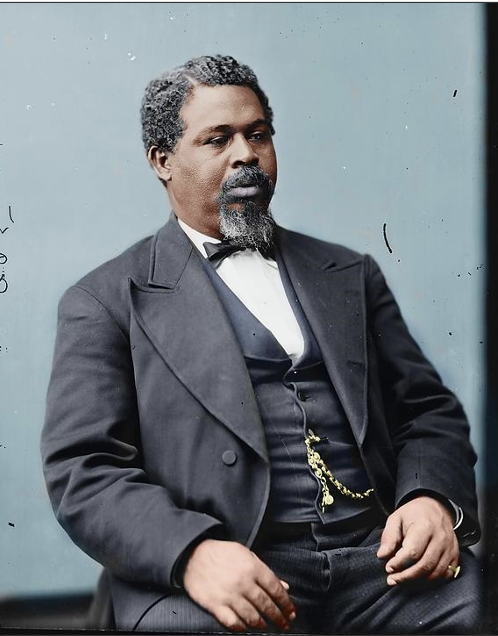 Born into slavery in South Carolina, Robert Smalls orchestrated one of the most daring escapes of the Civil War. On May 13, 1862, Smalls, then working as a pilot aboard the Confederate transport ship CSS Planter, took control of the vessel while the white officers were ashore. He disguised himself, navigated the heavily mined Charleston harbor, and sailed toward Union forces. Once safely within Union lines, he surrendered the ship, providing valuable intelligence about Confederate defenses.
Born into slavery in South Carolina, Robert Smalls orchestrated one of the most daring escapes of the Civil War. On May 13, 1862, Smalls, then working as a pilot aboard the Confederate transport ship CSS Planter, took control of the vessel while the white officers were ashore. He disguised himself, navigated the heavily mined Charleston harbor, and sailed toward Union forces. Once safely within Union lines, he surrendered the ship, providing valuable intelligence about Confederate defenses.
Smalls’ heroism earned him recognition, and he went on to serve in the U.S. Navy and later as a U.S. Congressman during Reconstruction. He became a strong advocate for African American rights, helping to establish public education in the South and pushing for civil rights legislation.
World War I: Henry Johnson (1892–1929)
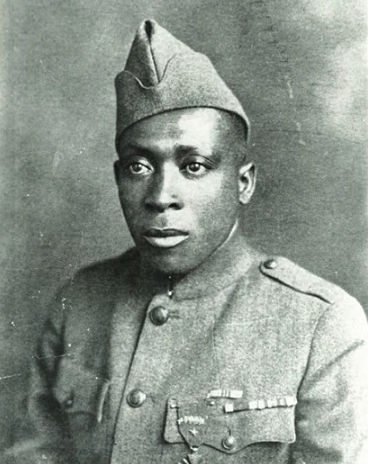 Henry Johnson was a soldier in the 369th Infantry Regiment, famously known as the Harlem Hellfighters. The all-Black unit fought under French command due to segregation in the U.S. military.
Henry Johnson was a soldier in the 369th Infantry Regiment, famously known as the Harlem Hellfighters. The all-Black unit fought under French command due to segregation in the U.S. military.
On May 15, 1918, during a nighttime raid in the Argonne Forest, Johnson and fellow soldier Needham Roberts were attacked by a German raiding party of at least 20 soldiers. Despite being severely wounded and outnumbered, Johnson fought back using his rifle, a knife, and even his bare hands, killing multiple enemy soldiers and preventing his comrade from being captured.
Johnson’s actions earned him the French Croix de Guerre, France’s highest military honor. However, he did not receive full recognition from the U.S. until decades later. In 2015, President Barack Obama posthumously awarded him the Medal of Honor.
World War II: Doris “Dorie” Miller (1919–1943)
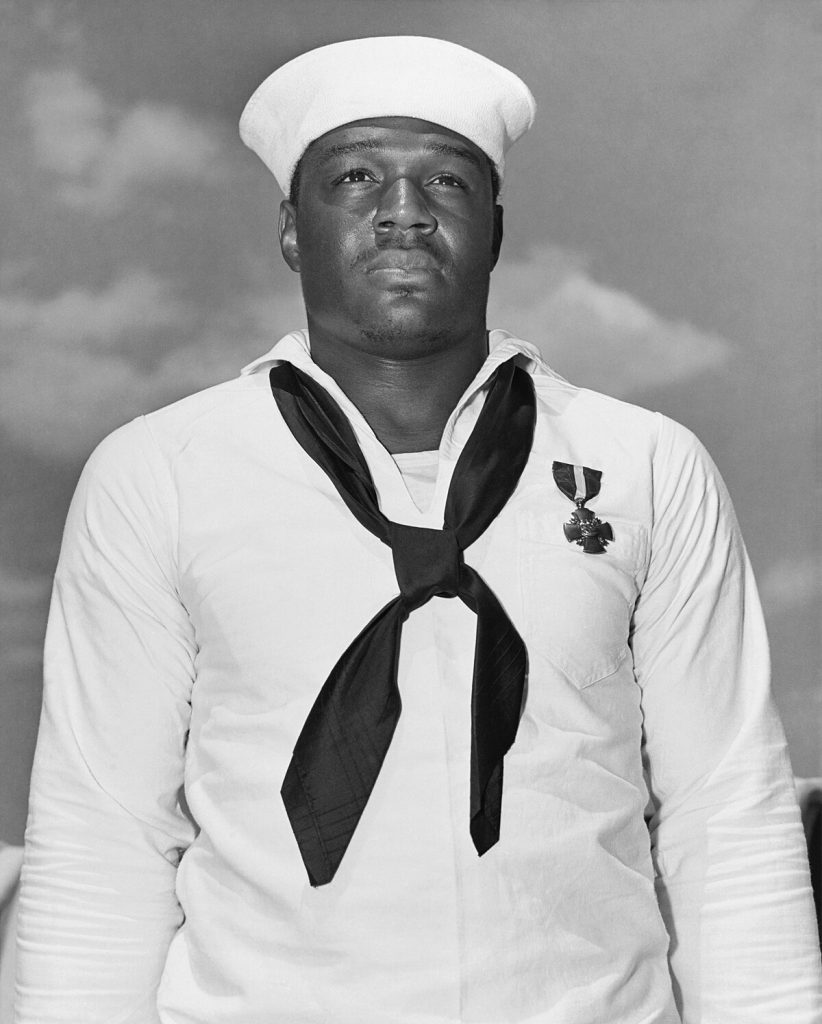 Doris Miller was a mess attendant aboard the USS West Virginia when Japan attacked Pearl Harbor on December 7, 1941. At the time, African Americans in the Navy were relegated to support roles and were not trained for combat.
Doris Miller was a mess attendant aboard the USS West Virginia when Japan attacked Pearl Harbor on December 7, 1941. At the time, African Americans in the Navy were relegated to support roles and were not trained for combat.
During the attack, Miller rushed to aid his wounded captain and then took control of an anti-aircraft gun, despite having no formal training. He fired at incoming Japanese planes, reportedly shooting down several, before being ordered to abandon ship.
His bravery earned him the Navy Cross, making him the first African American to receive the honor. After Pearl Harbor, Miller became a national hero and symbol of African American service in the military. Tragically, he died in 1943 when his ship, the USS Liscome Bay, was sunk in battle.
Korean War: Major Charles L. Thomas (1920–1980)
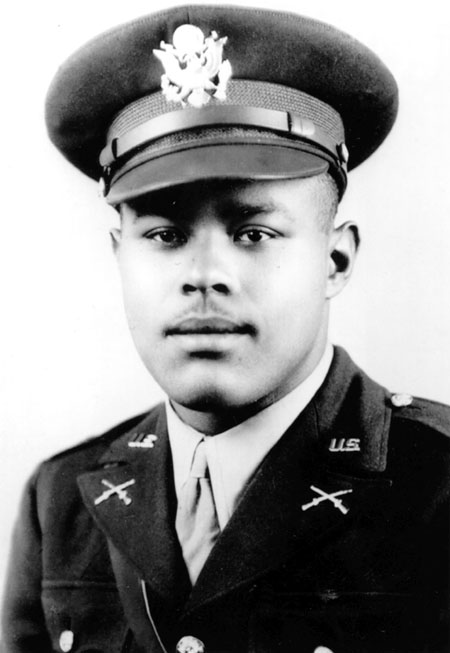 Charles L. Thomas was a decorated officer who served in both World War II and the Korean War. During World War II, he led an all-Black tank battalion in Europe, earning the Distinguished Service Cross.
Charles L. Thomas was a decorated officer who served in both World War II and the Korean War. During World War II, he led an all-Black tank battalion in Europe, earning the Distinguished Service Cross.
After the military was desegregated in 1948, Thomas continued serving in the Korean War, where he played a key role in leading integrated combat units. His leadership helped prove the effectiveness of African American officers and soldiers, further advancing civil rights within the armed forces.
Thomas’ bravery was recognized posthumously when he was awarded the Medal of Honor in 1997 for his World War II heroics, highlighting his lasting impact on military history.
Gulf War: General Colin Powell (1937–2021)
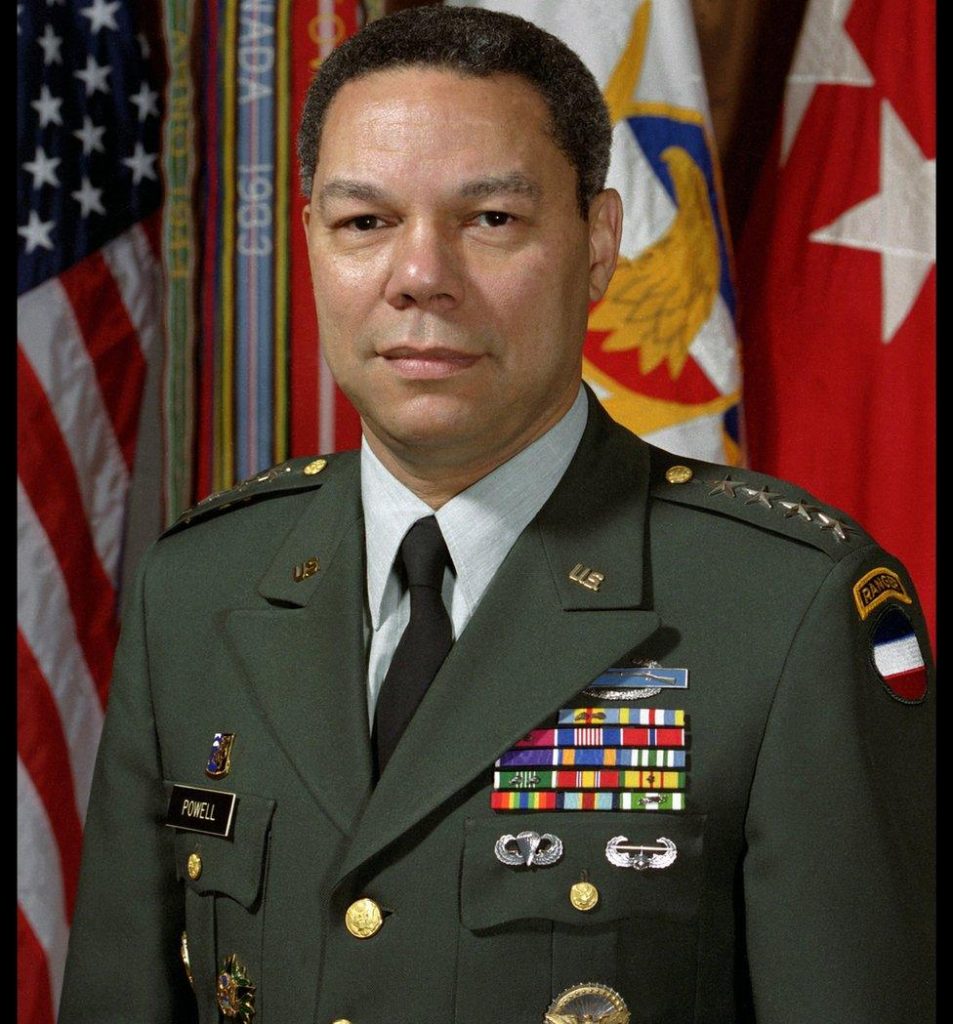 Colin Powell was the highest-ranking African American in U.S. military history at the time of the Gulf War, serving as Chairman of the Joint Chiefs of Staff. He was the principal architect of Operation Desert Storm, the military campaign that successfully pushed Iraqi forces out of Kuwait in 1991.
Colin Powell was the highest-ranking African American in U.S. military history at the time of the Gulf War, serving as Chairman of the Joint Chiefs of Staff. He was the principal architect of Operation Desert Storm, the military campaign that successfully pushed Iraqi forces out of Kuwait in 1991.
Powell’s leadership emphasized overwhelming force and precision strikes, resulting in a swift and decisive victory. His military strategy, later known as the “Powell Doctrine,” emphasized clear objectives and overwhelming force to minimize casualties.
Following his military career, Powell became the first African American Secretary of State in 2001, playing a key role in shaping U.S. foreign policy. His influence extended beyond the battlefield, as he became a strong advocate for education and leadership development among young people.
As we celebrate Black History Month, their stories remind us of the sacrifices made for freedom and equality—both on the battlefield and in society.



